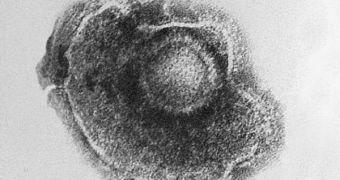Most viruses that are able to infect the human body, as well as other animals, require living cells in order to replicate and create more viral agents. However, they also need specific chemicals and proteins located inside these cells, without which their replication cycle cannot be started. Researchers have, for instance, identified a protein in hepatitis C-infected livers, which is essential for the survival of the virus. Inhibiting it would essentially starve the pathogen to death, a team of experts say. They also argue that the method could set the basis for revolutionary new ways of fighting all kinds of viruses, e! Science News reports.
One major disadvantage of existing antiviral therapies is that they target the viral agents directly. If this is unsuccessful the first time around, then there's a great chance that the pathogen will evolve to become resistant to the drugs. This translates into vast amounts of money and time being poured into discovering ever-new vaccines and countermeasures for evolving strains of viruses. But a more direct approach to destroying them, such as the one involving proteins, would essentially deprive the invading microorganisms of the chance to learn their enemies’ disabilities and adapt to exploit them.
According to a new paper, published in the prestigious journal Public Library of Science Pathogens, experts from the Heidelberg University Hospital Hygiene Institute Department of Molecular Virology, led by Director and Professor Dr. Ralf Bartenschlager, were recently able to hinder the development of hepatitis C using the new method. The disease affects some 170 million people worldwide. Four out of five hepatitis C patients are never completely cured of the virus, which persists in their livers, where it can trigger the development of conditions such as liver inflammation, liver cirrhosis and liver cell tumor.
“The therapeutic potential of inhibiting cellular factors essential for virus replication has thus far hardly been tapped. But this approach has the major advantage that resistance arises less frequently and to a lesser extent in comparison to therapies directly targeting viral factors,” Bartenschlager argues. The expert adds that, without the protein known as cyclophilin, which favors the assembly process of other proteins and also of larger structures within the cell, the reduced genetic material carried by the virus alone cannot ensure its survival.

 14 DAY TRIAL //
14 DAY TRIAL //